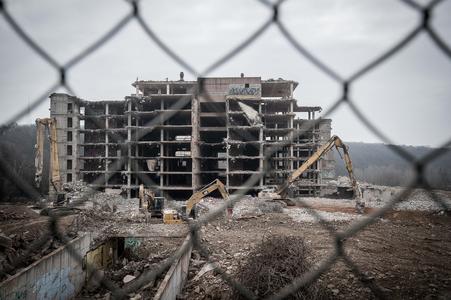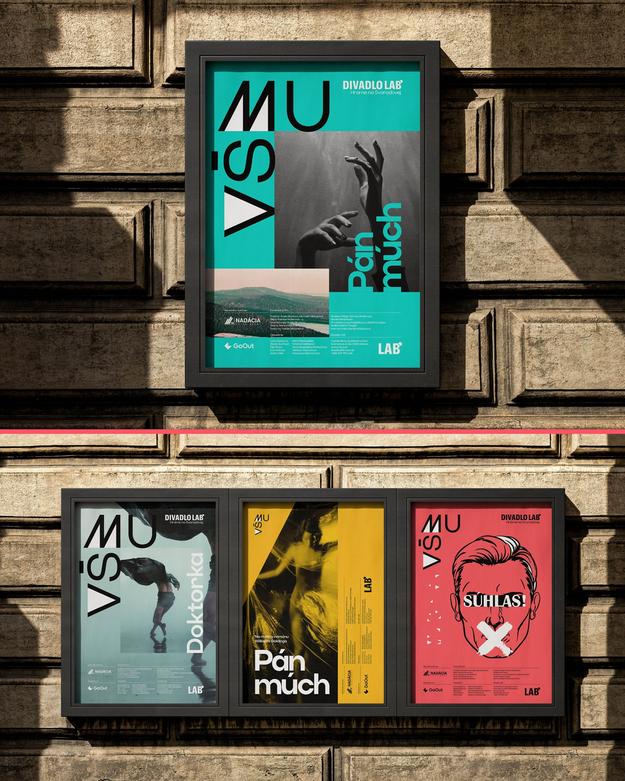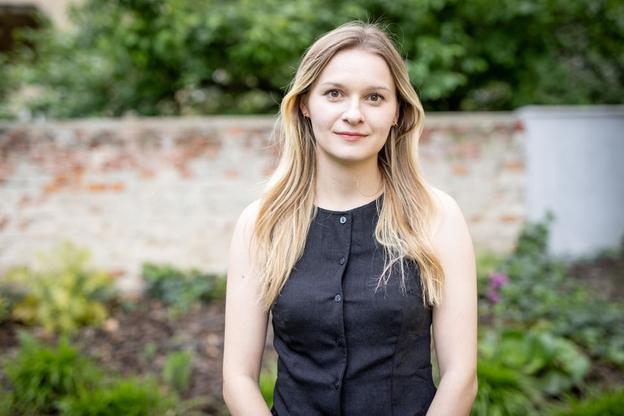Every week The Slovak Spectator brings you a selection of three short stories from across Slovakia from which pessimism and negativity are absent.
Bratislava’s arts academy unveils bold visual identity
The Academy of Performing Arts in Bratislava (VŠMU) has entered a new chapter in its story, unveiling a dynamic visual identity designed to meet the demands of the digital age, according to the daily Hospodárske noviny. Developed with long-term creative partner MADE BY VACULIK, the fresh design pays tribute to the school’s original logo while embracing clarity, flexibility and inclusivity. The reimagined system reflects VŠMU’s multidisciplinary spirit, spanning theatre, music, dance, film, game design and beyond. From digital platforms to printed materials and student showcases, the new look is crafted to unify without restricting, balancing structure with creative freedom.
At its heart, the updated logo retains the symbolic triangle — representing light, sound and film — that has defined the school’s image for years. Now reworked into modular, easily adaptable forms, the design highlights the letter M in “múzických”, while subtly alluding to the academy’s three core faculties. This geometric motif extends across the identity as a distinctive pattern, weaving consistency through every format, from minimalist applications to dynamic animations.
“Our goal was to create a system that feels both timeless and practical, yet rooted in artistry and diversity,” said Filip Šufliarsky, Senior Art Director at MADE BY VACULIK. As Rector Martin Šmatlák put it, VŠMU’s new visual language does more than modernise — it brings unity without sacrificing individuality.
Remarkable archaeological discoveries uncovered near Nitra
A rescue excavation near Nitra, at the future site of the Šurany Industrial Park, has uncovered significant archaeological finds ranging from the Bronze Age to World War II, writes the Refresher news website. Led by the Slovak Academy of Sciences (SAV), the dig has revealed a mediaeval village, burial grounds from both the Middle Ages and the Bronze Age, and even the grave of a German soldier who likely died during a WWII retreat.
Despite years of farming in the area, the artefacts remained intact just beneath the surface due to shallow ploughing. Each find is being carefully documented and preserved, with some items transported for detailed lab analysis.
The discoveries won’t delay construction of the industrial park. All the artefacts are protected under Slovak heritage law and are the property of the Slovak Republic. The project is being overseen by MH Invest, an entity operated by the Economy Ministry, as part of a strategic national development.
German student recommends studying in Slovakia
Originally from Duisburg, Germany, Lea Thome chose to study at Slovakia’s private LEAF Academy high school and would recommend it to anyone, she told the Aktuality.sk website in an interview. Her educational path took her from Slovakia all the way to Washington, DC, where she now works as a China–West relations expert.
Thanks to her Slovak education, Thome became the first student from a Slovak school to earn the prestigious Schwarzman Scholarship. She went on to hold research roles at the Woodrow Wilson Center and the Kissinger Institute, and now works as a programme manager at AidData at the College of William & Mary.
Some more feel-good stories published by The Slovak Spectator for you to enjoy:
Slovak scientists have won an award for advancing animal-free testing methods.
Košice erased a two-goal deficit in the third period and clinched the 2024/25 Slovak ice hockey title in overtime, cementing their place as Slovakia’s most successful hockey club.
Think you know Slovak? Dialects from across the country will have you calling potatoes grule, nokrle and beyond.
When the descendants of Slovak migrants walk the same paths as their ancestors, they rediscover family, identity and a sense of belonging.
A call during the pandemic led American Gregory Stein on a remarkable journey to reconnect with lost relatives and rediscover his family’s Slovak roots dating back to the 18th century.
From teaching in Bratislava to filmmaking: Al Pillar’s journey to "Symphony of Strangers".
Meme of the week
Caption: Legend has it that with every chunk of plaster that falls from a Slovak hospital, a new villa rises on the coast somewhere abroad.
During a check-up at a public health centre in Trnava, a large piece of plaster fell from the ceiling of the Družba clinic just moments after a nurse had asked one mother, Lucia, to move her baby’s stroller, according to TV Markíza. Lucia suffered relatively light injuries, but the falling debris plaster could have seriously hurt or even killed her infant. The building manager, however, blamed the incident on shockwaves from a low-flying supersonic jet, calling it "a rare event". Lucia plans to seek compensation.
The development came in the same week as new revelations emerged about suspected misuse of public funds, not to mention the improbably common phenomenon of governing politicians acquiring luxury villas on the Adriatic. In the latest report, a mansion owned by a prominent businessman close to the government was allegedly built using mostly EU funds, but has ended up wholly owned by the businessman. The ostensible reason for the subsidy was to support the construction of a "guesthouse" – but reporters were unable to book a stay there, or find anyone who ever had.

You can send me your tips for good news stories about Slovakia or funny memes at: kseniia.husieva@spectator.sk. Thank you!


 VŠMU's new visual identity (source: Facebook - Made by Vaculik)
VŠMU's new visual identity (source: Facebook - Made by Vaculik)
 Lea Thome (source: David Ištok/Aktuality.sk)
Lea Thome (source: David Ištok/Aktuality.sk)